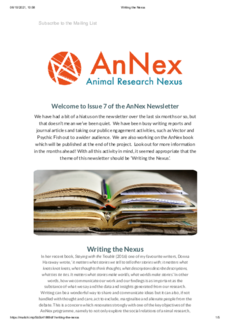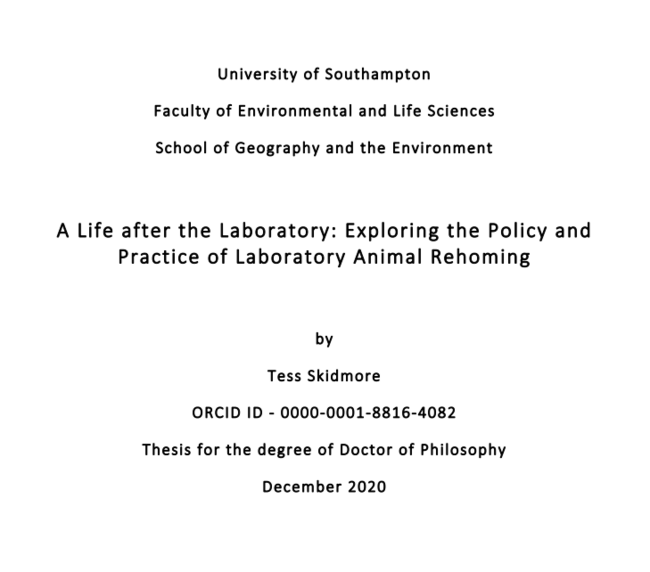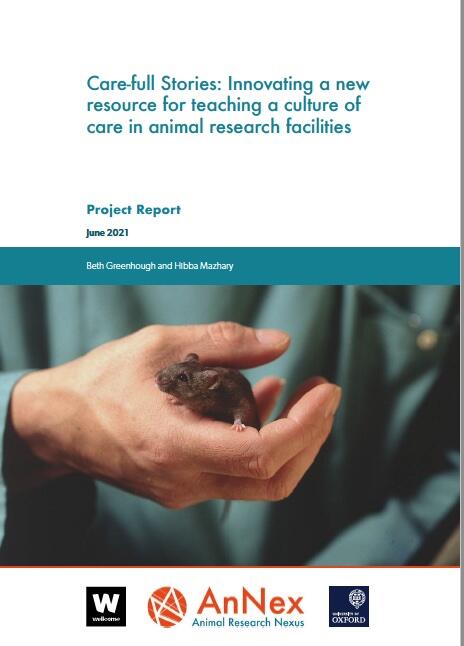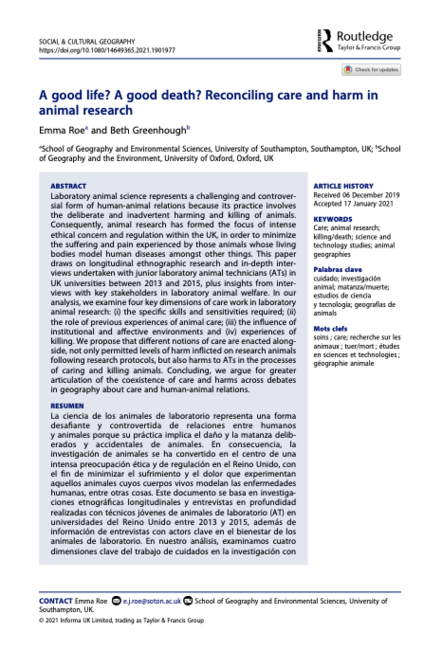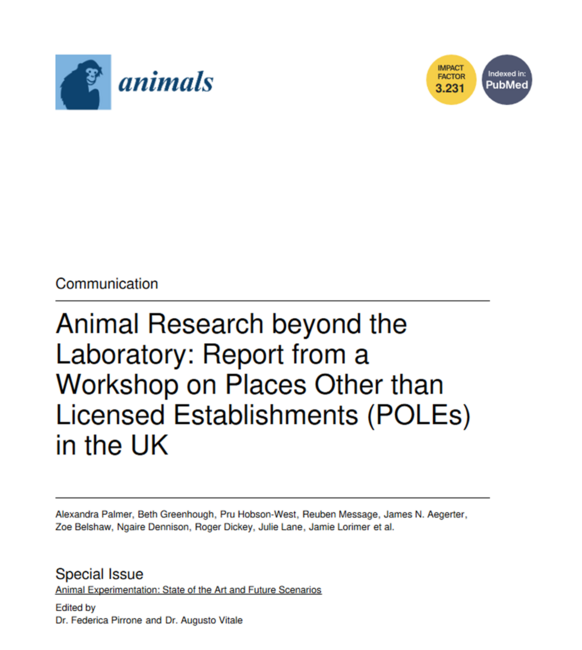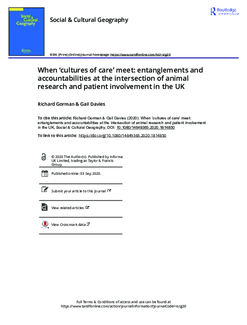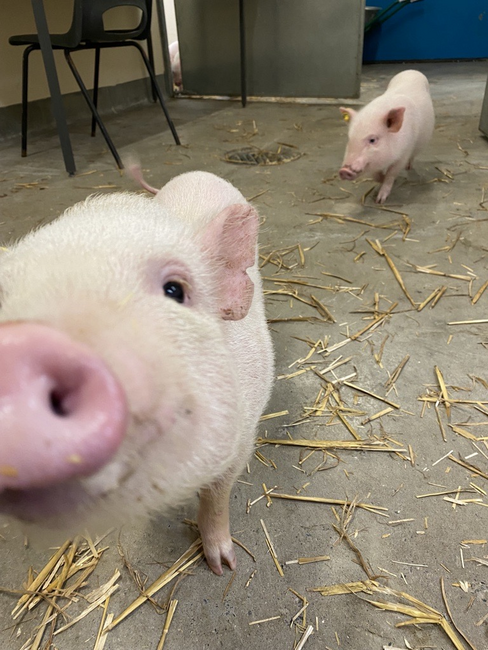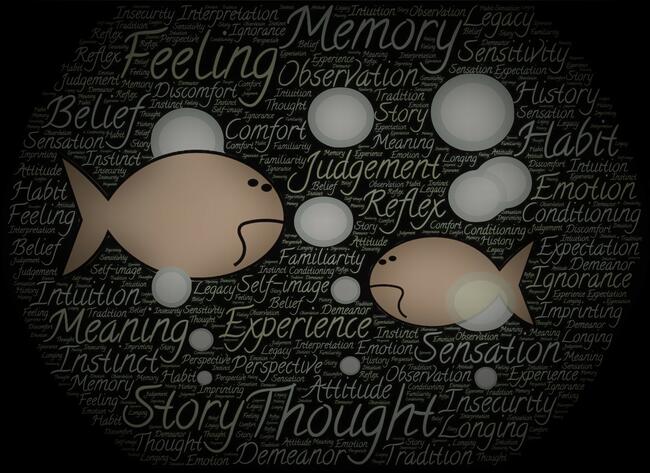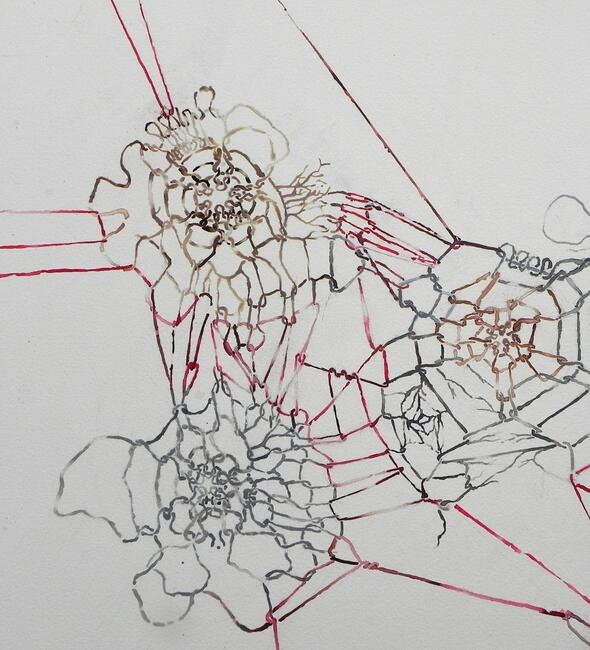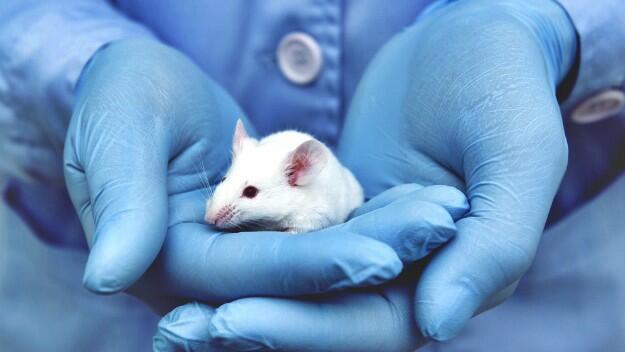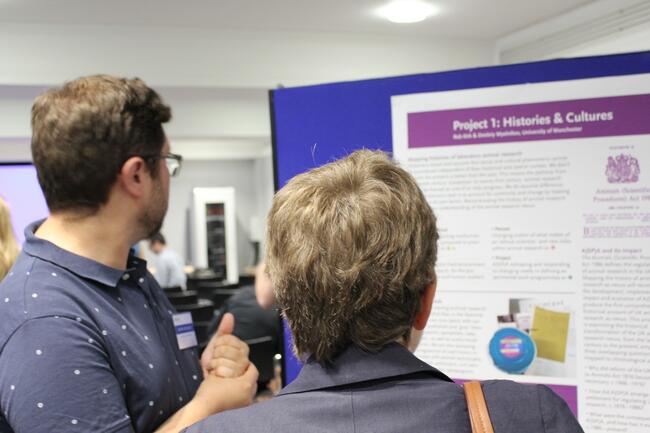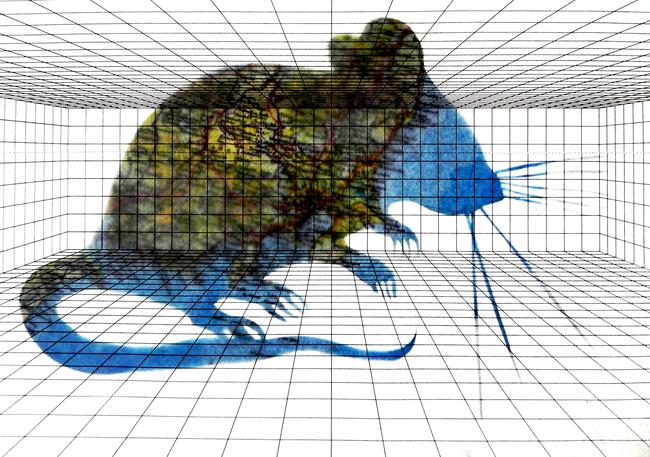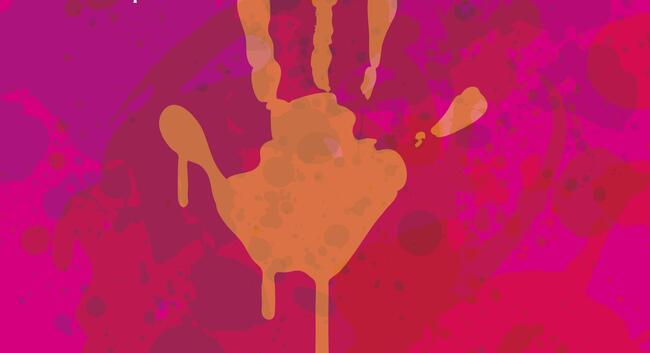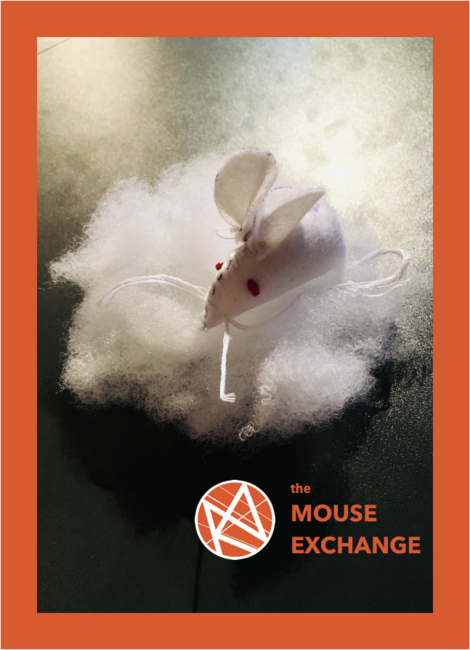Culture of Care
Relevant, tagged site content:
Engagement Activities
The Mouse Exchange is a public engagement activity that invites small groups of members of the public to “
Care-full Stories is an adaptable training toolkit for those working in the animal research sector. It uses fictionalized prompts as a resource for staging small group discussions around institutional cultures of care.
Publications
This report describes the development, piloting and evaluation of a two-to-three hour training exercise that uses storytelling to reflect upon the culture of care in animal research establishments.
This book features highlights from the Animal Research Nexus Programme to demonstrates how the humanities and social sciences can contribute to understanding what is created through animal procedures - including constitutional forms of research governance, different institutional cultures of care, the professional careers of scientists and veterinarians, collaborations with patients and publics, and research animals, specially bred for experiments or surplus to requirements.
Developing the idea of the animal research nexus, this book explores how connections and disconnections are made between these different elements, how these have reshaped each other historically, and how they configure the current practice and policy of UK animal research.
This article examines why early twenty-first century animal research governance in Britain foregrounds the ‘culture of care’ as its key problem. It adopts a historical perspective to understand why the regulation of animal research became primarily a problem of ‘culture’, a term firmly associated with the social relations of animal research, at this time and not before.
Animal research remains a practice marked by controversy and moral dilemma. However, UK science-society dialogues on the issue are increasingly managed via one-way transmissions of information which construct publics as passive and attribute their concerns to a lack of ‘correct’ knowledge. Challenging such assumptions, this paper questions how and why people actively manage their interactions with animal research through entangled practices of knowing and caring. Based on an analysis of writing from the UK Mass Observation Project, this paper explores difficulties and discomforts associated with animal research which can cause strategic withdrawals from engagements with the topic. In doing so, it extends existing concepts of ‘uncomfortable knowledge’ (Rayner) and ‘strategic ignorance’ (McGoey) to develop novel concepts of ‘uncomfortable’ and ‘strategic’ care. Finally, in examining desires to respond to animal research, I engage with Haraway’s notion of ‘response-ability’ to introduce the concepts of ‘responsive caring’ and ‘responsive knowing’.
This thesis, written by Tess Skidmore, explores the rehoming of laboratory animals. Drawing on qualitative interviews and a semi-structured questionnaire, the thesis investigates the sociocultural and political importance of the growing attention toward rehoming.
This report describes the design, piloting and evaluation of a 2–3-hour training exercise that uses storytelling to reflect upon the culture of care in animal research establishments.
Laboratory animal science represents a challenging and controversial form of human-animal relations because its practice involves the deliberate and inadvertent harming and killing of animals. We propose that different notions of care are enacted alongside, not only permitted levels of harm inflicted on research animals following research protocols, but also harms to ATs in the processes of caring and killing animals.
Animal research conducted outside of the laboratory faces various unique challenges, but has received only limited attention in terms of official guidelines, support, and statistics. To improve understanding, we held a workshop bringing together experts familiar with a variety of nonlaboratory animal research contexts (e.g., wildlife field sites, farms, fisheries, veterinary clinics, zoos). We collectively identified five key areas that we propose require further discussion and attention, which we present in this paper. While the workshop focused on research in the UK, our conclusions may have implications for similar work overseas.
A good culture of care, empowering individuals within organisations to care and reflecting wider social expectations about care, is now a well-documented aspiration in managing practices of laboratory animal research and establishing priorities for patient and public health. However, there is little attention to how different institutional cultures of care interact and what happens to the accountabilities of caring roles and the entanglements of caring practices when institutional cultures meet.
Blog entry
The University of Southampton was fortunate to host one Wellcome funded PhD studentship within the AnNex programme.
Research conducted by members of the AnNex team has highlighted the growing number of initiatives designed to engage and involve people with health conditions with the research that affects them.
Care is complicated and hard.
Leading research organisations, such as the UK’s Wellcome Trust (2020), recognise there is a need to create a more care-full and supportive working environmen
We are delighted to publish this guest blog as part of our Coronavirus Connections series.
Numbers can be a contentious issue in animal research.
Understanding and examining the significance of the laboratory space physically, practically, emotionally and metaphorically, is opening up new lines of social scientific enquiry regarding the relations between health, science and welfare
At the start of this project we stated one of our key objectives was to generate new cultures of communication across science, health and animal welfare, which would shape the future of animal research in the UK.
Events
Join researchers from the University of Southampton for a family day suitable for all ages.
Where do lab mice come from? Where do they end up? Joins us for crafting felt mice to exchange or take home. You can also explore the history, practices, and ideas of care involved in making laboratory mice.
Project partners

The Medical Research Council’s Mary Lyon Centre (MLC) is located on the Harwell Campus, Oxfordshire.
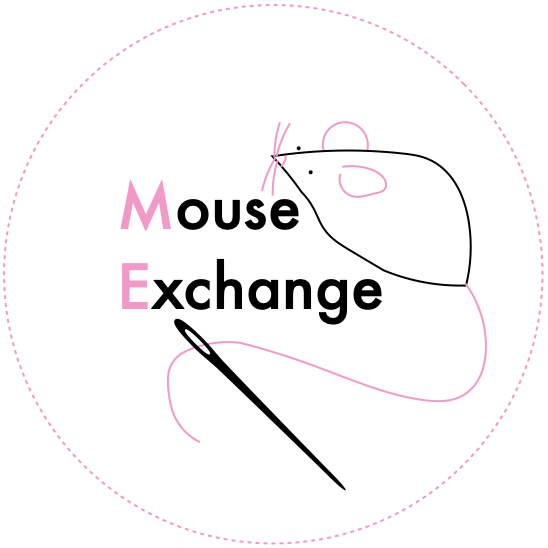
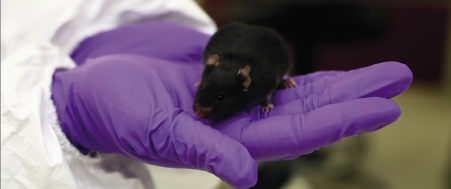
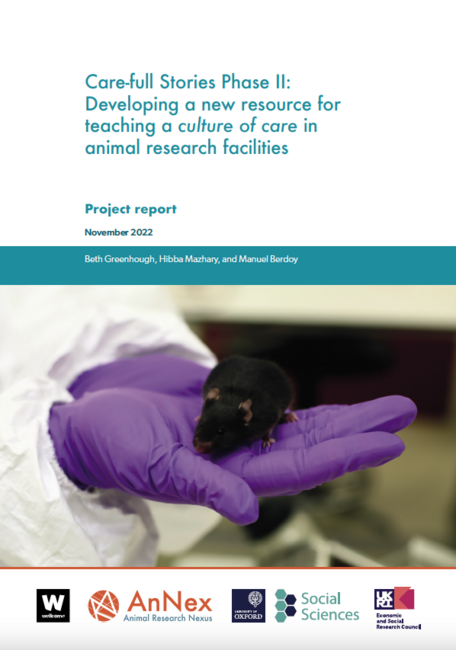
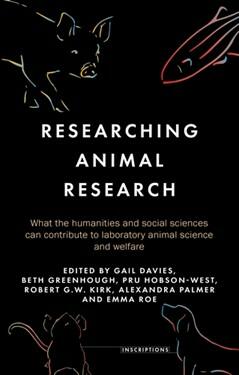
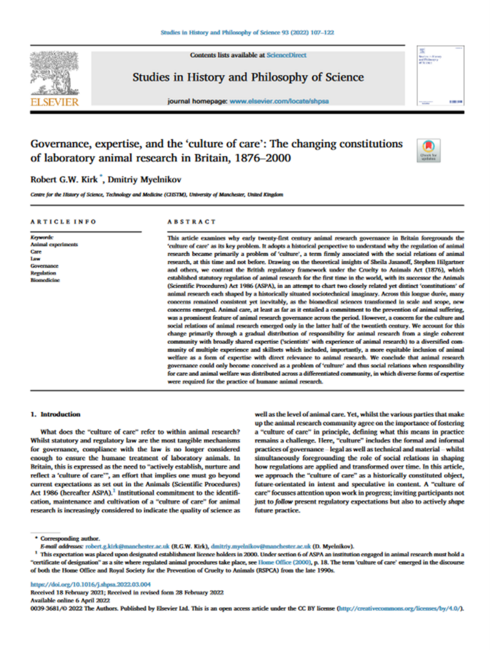
 Knowing and (Not) Caring About Animal Research_0.png%3Fitok=2jjq5NPu)
